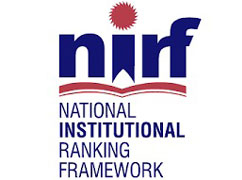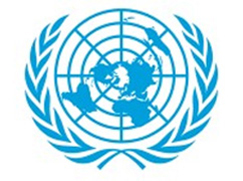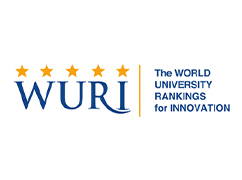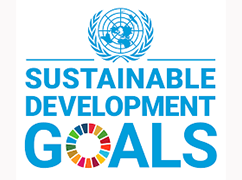CSA has facilitated an array of development programs in rural, urban and tribal areas of different states. CSA facilitates developmental activities in various sectors like health, education, social/community development, empowering community-based organizations (CBOs), land development, agricultural development. CSA aims to empower communities by empowering women to be socially, politically, economically active, and independent.
CSA has facilitated an array of development programs in rural, urban and tribal areas of different states. CSA facilitates developmental activities in various sectors like health, education, social/community development, empowering community-based organizations (CBOs), land development, agricultural development. CSA aims to empower communities by empowering women to be socially, politically, economically active, and independent. The organization functions in the states of Karnataka, Maharashtra, Delhi, Kerala, Telangana, and Chhattisgarh. The quality of life rendered to the women, children, and the community has brought notable and immeasurable positive changes.
Livelihood intervention has brought about economic empowerment among the beneficiaries. It has provided the members with financial stability and kept them away from the money lenders. This has been achieved through training like Entrepreneurship Development Programme (EDP), financial literacy, organizing visits for women providing exposure to a successful organization, etc.
Livelihood intervention has brought about economic empowerment among the beneficiaries. It has provided the members with financial stability and kept them away from the money lenders. This has been achieved through training like Entrepreneurship Development Programme (EDP), financial literacy, organizing visits for women providing exposure to a successful organization, etc.
The projects that were sustained earlier have contributed more (70% – 90%) in these aspects. Bastar and Unnathi are currently running projects which are contributing around 50% towards livelihood. The numbers are increasing as the awareness about the importance of livelihood among the members is increasing.
Community-based organizations (CBOs) are the people’s institutions. CSA forms CBOs intending to ensure their active participation in the developmental process. Having successfully managed 12 Self-Help Groups (SHGs) in Rajendra Nagar, which is now completely independent, CSA continues to form and strengthen SHGs to proactively engage the women of the slum community for social progress and economic dynamism.
Community-based organizations (CBOs) are the people’s institutions. CSA forms CBOs intending to ensure their active participation in the developmental process. Having successfully managed 12 Self-Help Groups (SHGs) in Rajendra Nagar, which is now completely independent, CSA continues to form and strengthen SHGs to proactively engage the women of the slum community for social progress and economic dynamism.
Currently, CSA is managing 11 SHGs in Janakiram Layout and 2 SHGs in LR Nagar. While the total savings of the groups amounted to Rs. 18,43,080, the total loan availed by the members amounts to Rs. 23,07,000, and the loan repaid amounts to Rs. 12,80,700.
Apart from the aforementioned, children’s parliament, eco-clubs, parent’s committees, and youth groups are being promoted in the slum community to involve the local communities in the people-based development paradigm propagated by CSA.
The quality of services rendered by CSA through its 5 urban slum development projects has brought illustrious & immeasurable changes. Our sense of pride comes out of significant transformations and positive results among the children and women of the marginalized section in health, education, awareness, livelihood promotion, and promoting value-based living. Substantial contributions have been made to improve the quality of life and sense of belonging to the underprivileged section regardless of their caste, creed, color, religion, and language.
In the year 2002, the activities were extended to rural areas as part of a community development initiative. Initially, the first project was started in the region of Hoskote (a rural district of Bangalore). The developmental activities are now extended to 11 rural areas across India, with development and self-sufficiency being core objectives. Substantial contributions have been made towards improving the quality of life of the people belonging to the underprivileged section regardless of caste, creed, race, religion, gender, and language. 4 out of 6 rural projects have been sustained. They are now managed by the registered body of the respective federations, and the remaining two are ongoing projects which are implemented based on the Self Help Group Approach (SHA).
| No. | Name /place | Year started | Completion Date | Villages /hamlets | No. of Families | Beneficiaries | Activities |
|---|---|---|---|---|---|---|---|
| 1 | Hoskote | 2003 | 2006 | 12 | 1400 | 1071 children, 1430 women and 426 youth | Early childhood care and nutrition, Strengthening Children’s Education, Community Health and Hygiene, Livelihood Promotion, and Community Based Organizations (CBOs) |
| 2 | Nirmal District, Telungana State | 2006 | 2013 | 14 | 1520 | 900 children, 800 women and 400 youth | Early childhood care and nutrition, Strengthening Children’s Education, Community Health and Hygiene, Livelihood Promotion, and Community Based Organizations (CBOs) |
| 3 | MHCDP /Jiwati Chandrapur | 2009 | 2018 | 24 | 1430 | 1100 children, 1015 Women and 350 youth, | Health and nutrition, Strengthening Children’s Education, 3) Community Health and Hygiene, Livelihood Promotion, and Community Based Organizations (CBOs) |
| 4 | Pragathi, CFCD, Kolar | 2012 | 2019 | 22 | 1500 | 1100 children, 450 women and 300 youth | Health and nutrition, Strengthening Children’s Education, Community Health and Hygiene, Livelihood Promotion, and Community Based Organizations (CBOs) |
| 5 | Unnathi CFCD, Jamkhandi | 2015 | 2020 | 11 | 1200 | 1200 children, 800 women and 300 adolescents/youth | Early childhood care and nutrition, Strengthening Children’s Education, Community Health and Hygiene, Livelihood Promotion, and Community Based Organizations (CBOs) |
| 6 | BCDP, Pakhanjore, Kanker District | 2015 | 2022 | 34 | 1709 | 1500 children, 1400 women and 800 adolescents/youth | Social Empowerment, Economic Empowerment and Political Empowerment with primary focus on education, health and nutrition, livelihood, CBO formation and rights and entitlements. |
| 7 | ICDP – Kainakari | 2015 | 2018 | 900 | 300 children, 350 women and 120 youth | Educational development, Community health, Livelihood programme and sustainable agriculture | |
| 8 | MEEP – Kainakari | 2016 | 2018 | 2 | 1800 | 850 children, 350 women | Education to children & women, Livelihood promotion and awareness on organic farming |
| Timeline | 2010-11 | 2011-12 | 2012-13 | 2013-14 | 2014-15 | 2015-16 | 2016-17 | 2017-2018 |
|---|---|---|---|---|---|---|---|---|
| No. of Projects Implemented | 3 | 3 | 4 | 4 | 5 | 6 | 6 | 6 |
| No. Villages covered in 5 states (Karnataka, Telangana, Maharashtra, Chhattisgarh, Kerala) | 53 | 53 | 75 | 75 | 86 | 122 | 122 | 128 |
| Beneficiary Details | ||||||||
| Early childhood care & nutrition (Birth to 5 years) | 2118 | 2224 | 2965 | 3113 | 3570 | 8676 | 9100 | 9356 |
| Strengthening Children’s Education (6 to 16 years) | 2586 | 2715 | 3842 | 4035 | 4626 | 6617 | 6947 | 7605 |
| Community health and hygiene | 4609 | 4609 | 6409 | 8209 | 9459 | 9759 | 9759 | 10,959 |
| Livelihood promotion (microenterprises and vocational skills) | 2305 | 2535 | 3205 | 3524 | 4729 | 5202 | 5722 | 5973 |
| Community Based Organizations (Women Self-help Groups) | 136 | 151 | 169 | 181 | 209 | 228 | 271 | 307 |
The community development programmes of CSA are derived from the National Service Scheme (NSS). In 1999, the Departments of Computer Science and Commerce student volunteers visited a slum in Koramangala called Rajendranagar. Having seen the poor living conditions of the people, the students were motivated to start educative programmes for the children in Rajendranagar. The students mobilized support for educating 47 children. They provided them with educational materials such as school bags, books, stationery, etc., to help them continue their education.
This became the first activity of CSA, called the ‘Educate a Child’ Programme. As a follow-up mechanism, the volunteers continued to go to the slums, rented a building, and started to take tuitions for them to support their education. This facilitated CSA to venture out into community development programmes. CSA currently operates in 5 slum communities, 3 slums in Bengaluru such as Lakshman Rao Nagar, Ambedkar Nagar, and Janakiram Layout, and 2 slums Ghaziabad and Uttar Pradesh, namely Bombay colony and Reth Mandi.
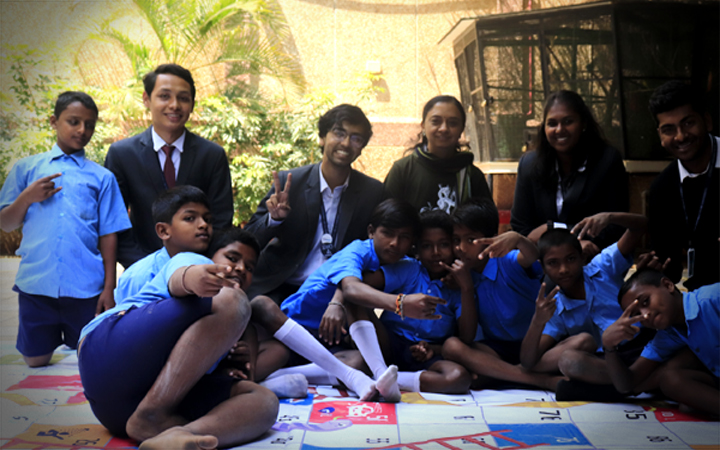
CSA runs one library center at L R Nagar, under its “Grow by Reading” concept. The Library Centre has a varied range of books – academic, fiction, nonfiction. Library Centre works systematically, enrolls children, and aims at inculcating reading habits in them. It ensures the spread of knowledge, along with improving children’s vocabulary and pronunciation.
Annually, about 360 children benefit from this program. So far, more than 1,000 children have accessed the library, improved their knowledge and self-learning skills.
CSA runs one library center at L R Nagar, under its "Grow by Reading" concept. The Library Centre has a varied range of books - academic, fiction, nonfiction. Library Centre works systematically, enrolls children, and aims at inculcating reading habits in them. It ensures the spread of knowledge, along with improving children's vocabulary and pronunciation.
Annually, about 360 children benefit from this program. So far, more than 1,000 children have accessed the library, improved their knowledge and self-learning skills.
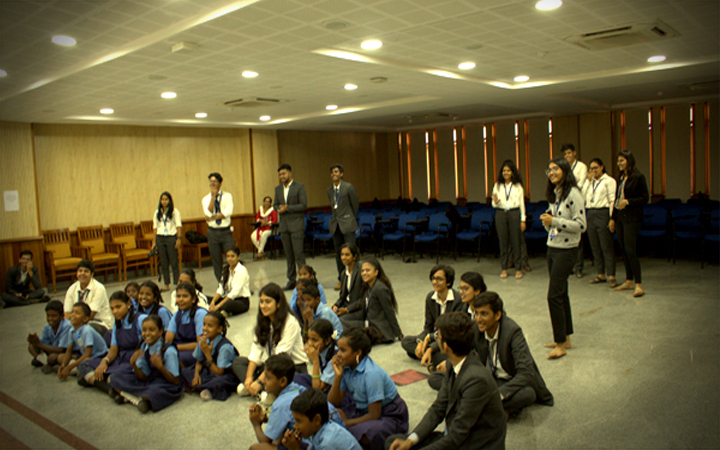
CSA has been running 3 well-equipped computer centers for the children residing in the project areas. To bridge the gap between the young minds and today’s fast advancing technology, basic computer literacy is imparted to grade 8 to grade 10.
The Computer Centre has been instrumental in fueling the youth towards a digital tomorrow. Annually, about 280 children benefit from this program. So far, around 900 children were trained in basic computer education.
CSA has been running 3 well-equipped computer centers for the children residing in the project areas. To bridge the gap between the young minds and today's fast advancing technology, basic computer literacy is imparted to grade 8 to grade 10.
The Computer Centre has been instrumental in fueling the youth towards a digital tomorrow. Annually, about 280 children benefit from this program. So far, around 900 children were trained in basic computer education.
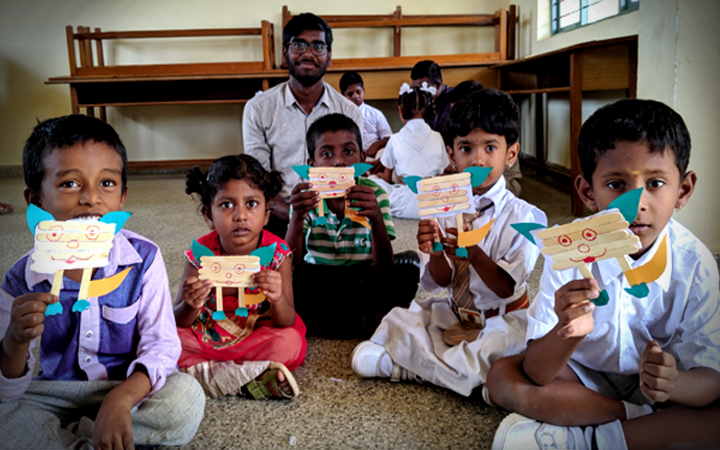
It is one of the flagship programs of CSA, which is conducted throughout the year. Activities conducted at these centers ensure academic vigor and language expertise. With the addition of a buddy system, the program also attempts to ensure the children’s emotional well-being and development. Currently, CSA facilitates 12 children’s Activity Centres to improve the children’s learning levels, cognitive skills, and life skills.
It is one of the flagship programs of CSA, which is conducted throughout the year. Activities conducted at these centers ensure academic vigor and language expertise. With the addition of a buddy system, the program also attempts to ensure the children's emotional well-being and development. Currently, CSA facilitates 12 children’s Activity Centres to improve the children’s learning levels, cognitive skills, and life skills.
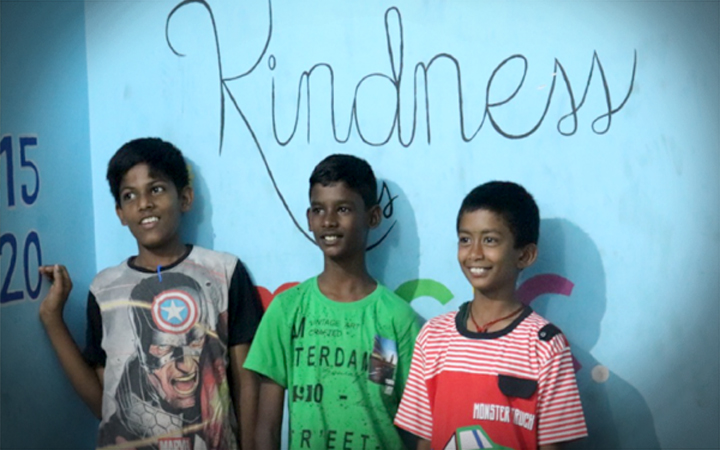
The project areas have well-equipped daycare centers for children between 18 months to 3 years to help the working women with their chores and make motherhood more convenient. While children’s nutritional status and health care are being taken care of, Day Care Centre also provides input to mothers on nurturing their infants. Currently, there are 4 Daycare centers functional in LR Nagar, Janakiram Layout, Bombay Colony, and Reth Mandi. Annually about 100 children and their mothers are benefitted from this program.
The project areas have well-equipped daycare centers for children between 18 months to 3 years to help the working women with their chores and make motherhood more convenient. While children’s nutritional status and health care are being taken care of, Day Care Centre also provides input to mothers on nurturing their infants. Currently, there are 4 Daycare centers functional in LR Nagar, Janakiram Layout, Bombay Colony, and Reth Mandi. Annually about 100 children and their mothers are benefitted from this program.
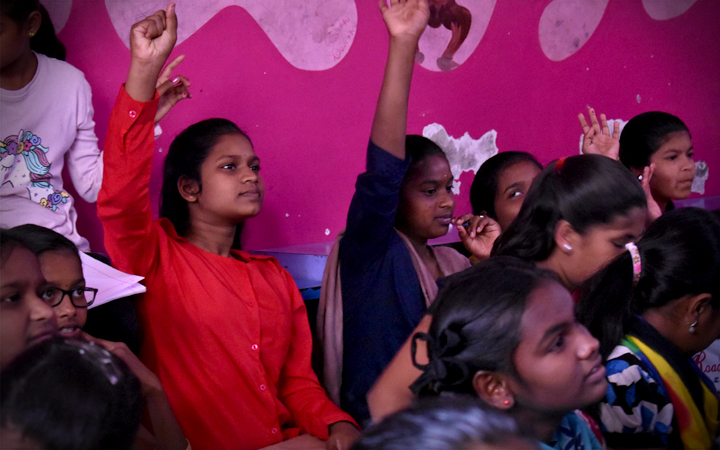
CSA has been running Transit School at L. R. Nagar for school dropouts. Annually, about 30 to 35 children within the age group of 5 to 14 years benefit from this program. Children are given school uniforms, shoes, bags, and educational materials. This is a need-based program facilitated by CSA for school dropouts. Despite numerous challenges, on average, 26 children daily attend the Transit School. On average, 12 to 15 children are mainstreamed and admitted in government and private schools annually. Over the years, around 192 children have enrolled in Transit school, out of which 140 children were mainstreamed, and 52 children migrated.The programme is in line with the government’s New India Literacy campaign, which is based on the New Education Policy and is designed specifically for non-literates aged 15 and above. It will aid in the development of all parts of adult education, such as Foundational Literacy and Numeracy, Critical Life Skills, Vocational Skills Development, Basic Education and Continuing Education.
CSA has been running Transit School at L. R. Nagar for school dropouts. Annually, about 30 to 35 children within the age group of 5 to 14 years benefit from this program. Children are given school uniforms, shoes, bags, and educational materials. This is a need-based program facilitated by CSA for school dropouts. Despite numerous challenges, on average, 26 children daily attend the Transit School. On average, 12 to 15 children are mainstreamed and admitted in government and private schools annually. Over the years, around 192 children have enrolled in Transit school, out of which 140 children were mainstreamed, and 52 children migrated.The programme is in line with the government's New India Literacy campaign, which is based on the New Education Policy and is designed specifically for non-literates aged 15 and above. It will aid in the development of all parts of adult education, such as Foundational Literacy and Numeracy, Critical Life Skills, Vocational Skills Development, Basic Education and Continuing Education.
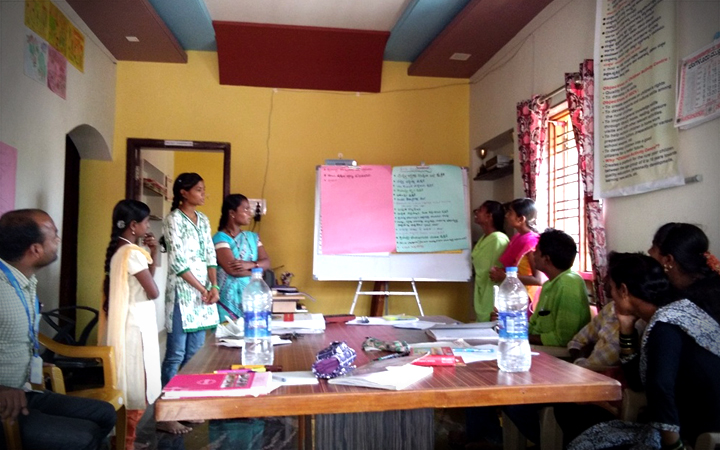
“Educate a Child Sponsoring Programme” is an inspiring initiative by CSA with the contribution from the student community of CHRIST (Deemed to be University). Through this project, the students sponsor the education of underprivileged children from the urban slums of Bengaluru. This initiative took off in 1999 with a small number of 47 children from the urban slum community. The sponsorship supports the children with school dress, school fees, books, uniforms, bags, and other stationery items. The sponsored children also avail themselves of different co-scholastic and life-skill orientations such as personality development, leadership, and creative skill development. Health camps, talent shows, excursions, and sports competitions are also conducted along with the activity center and buddy system.
“Educate a Child Sponsoring Programme” is an inspiring initiative by CSA with the contribution from the student community of CHRIST (Deemed to be University). Through this project, the students sponsor the education of underprivileged children from the urban slums of Bengaluru. This initiative took off in 1999 with a small number of 47 children from the urban slum community. The sponsorship supports the children with school dress, school fees, books, uniforms, bags, and other stationery items. The sponsored children also avail themselves of different co-scholastic and life-skill orientations such as personality development, leadership, and creative skill development. Health camps, talent shows, excursions, and sports competitions are also conducted along with the activity center and buddy system.
|
No. |
Name /place |
Year started |
Completion Date |
No. of Slums |
No. of families |
Beneficiaries |
Activities |
|---|---|---|---|---|---|---|---|
|
1 |
Rajendra Nagar |
1999 |
2017 |
1 |
2500 |
530 children and 375 women. |
Strengthening Children’s Education through Child Sponsorship Programme, Community Based Organizations (CBOs) such as self-help groups, and bridge school for drop out children, library and computer center, housing project, formation of eco-clubs in school and decentralized solid waste management unit. |
|
2 |
Ambedkar Nagar |
2013 |
On going |
1 |
300 |
350 children and 50 Women
|
Strengthening Children’s Education through Child Sponsorship Programme, Community Based Organizations (CBOs) such as parents committee and library. |
|
3 |
LR Nagar |
2010 |
On going |
1 |
500 |
600 children, 50 women and 50 adolescents and youth. |
Early childhood care and nutrition through Day Care Centre, Strengthening Children’s Education through Child Sponsorship Programme, Community Based Organizations (CBOs) such as parents committee, computer centre, library, transit school for drop out children and vocational employment skill training. Employment referral. |
|
4 |
Janakiram Layout |
2008 |
On going |
1 |
2500 |
700 children, 350 women and 200 adolescents and youth |
Early childhood care and nutrition, Strengthening Children’s Education, Community Health and Hygiene, Community Based Organizations (CBOs) like SHG, vocational training (mobile training) computer training, second hand shop, business unit (Anu Spandana) |
|
5 |
Reth Colony (GZBD) |
2018 |
2020 |
1 |
600 |
600 children, 700 women and 350 adolescents/youth |
Early childhood care and nutrition, Strengthening Children’s Education, Community Health and Hygiene, Livelihood Promotion, and Community Based Organizations (CBOs) |
|
6 |
Bombay Colony (GZBD) |
2018 |
2020 |
1 |
600 |
600 children, 700 women and 350 adolescents/youth |
Early childhood care and nutrition, Strengthening Children’s Education, Community Health and Hygiene, Livelihood Promotion, and Community Based Organizations (CBOs) |
|
1. |
Uday Colony, Cochin |
2015 |
2018 |
1 |
300 |
140 women, 75 children and 70 youth |
Education, health and Livelihood promotion |
|
2. |
Parivarthana CU Campus |
2008 |
2015 |
1 |
25 |
25 families from the urban slums |
Waste collection, segregation, sale of recyclable materials, hand-made recycled paper, organic compost and bio-gas plant etc. |
|
Interventions |
2010–11 |
11-12 |
12-13 |
13-14 |
14-15 |
15-16 |
16-17 |
2017-18 |
|---|---|---|---|---|---|---|---|---|
|
Child Sponsorship amount contribution (in Lakhs) |
12.62 |
17.48 |
23.40 |
25.15 |
31.25 |
33.99 |
36.00 |
40.02 |
|
Educate a Child Sponsorship Programme (No. of children benefitted) |
315 |
437 |
584 |
628 |
761 |
806 |
881 |
807 |
|
Rural Exposure/Study Visits |
– |
32 |
39 |
60 |
62 |
46 |
13 |
32 |
|
Voluntary Student Participation |
70 |
112 |
137 |
154 |
188 |
221 |
269 |
450 |
|
Parivarthana Project – Solid Waste Management (Bangalore Slums) |
2 |
3 |
3 |
3 |
3 |
2 |
2 |
0 |
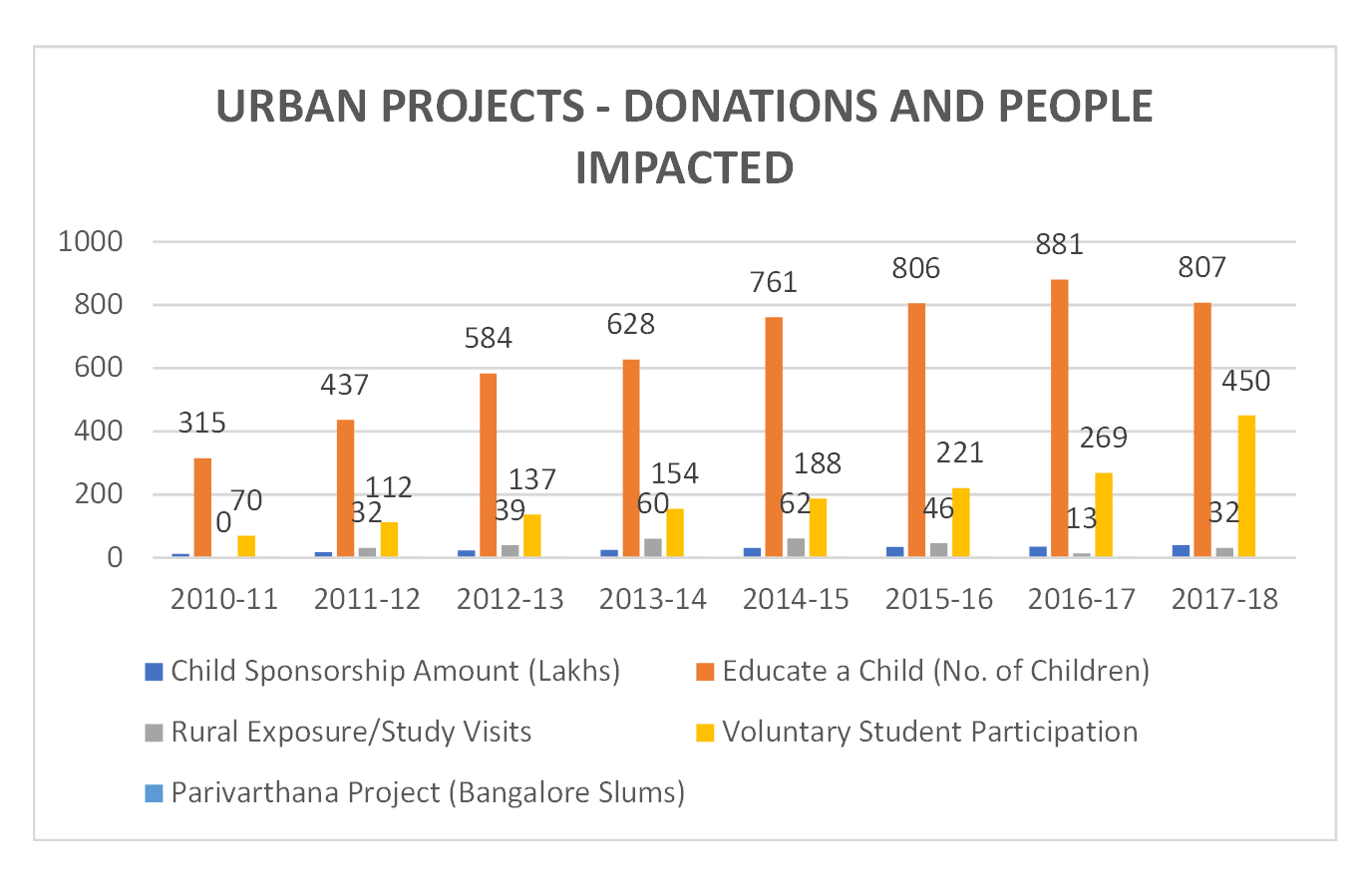
Tribal Development was initiated by CSA in collaboration with different organizations. The main objective of the developmental activities is to empower tribal communities of selected regions after identifying the marginalized tribes. The projects aim to create an ideal society for the children, youth, and the women of the tribal communities to access opportunities for holistic development. 2 out of 5 projects have been sustained as of now, and three are still ongoing.
During natural calamities and the recent pandemic, CSA facilitated disaster-management and mitigation activities, in collaboration with other organisations. In terms of covid-relief and flood relief, preparedness of the regions also played a major role in CSA’s efforts.
Covid-relief
The families in 3D Janakiram Layout and Vriddhi have seen an increase in unemployment, malnourishment, and health risks due to the COVID-19 pandemic. The volunteers started with the promotions of the Community Development Program from the last week of February to broaden the focus towards the overall development of the community.
The volunteers utilized social media in this regard to its full potential. Circulation of posters on social media platforms and collaboration with Instagram handle class-wise CDP promotions followed Under25.
Key Highlights

The fundraising initiatives have led to the collection of ? 5,00,000 up until now. The funds will directly go towards buying ration kits and providing support to the 750+ families of CSA’s project areas.

A total of 12,331 people and 1,030 families among the vulnerable population in the project areas were provided with relief support worth Rs. 20 lakhs 34 thousand rupees, through various interventions of the University.
Community Development Programme
The families in the Urban Project areas of CSA located in Bengaluru have seen an increase in unemployment, malnourishment, and health risks due to the COVID-19 pandemic. To deal with this, the volunteers started with the promotions of the Community Development Program from the last week of February to broaden the focus towards the overall development of the community.
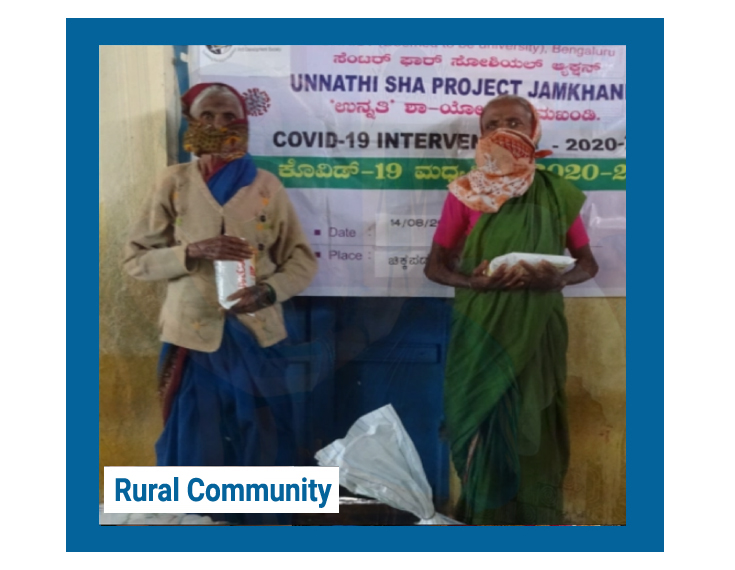
The CSA team in rural projects such as Pragati – Kolar district, Chetana – Hosakote, Unnati – Jamakhandi in Karnataka state, Pahanjoor in Kanker district, Chhattisgarh state, Kainakary block, Alleppey district, and Niravilpuzha in Wayanad district, Kerala, were proactively involved in coordinating and facilitating the relief works organized by local self-government bodies and Public Health Centres in their COVID-19 relief activities.
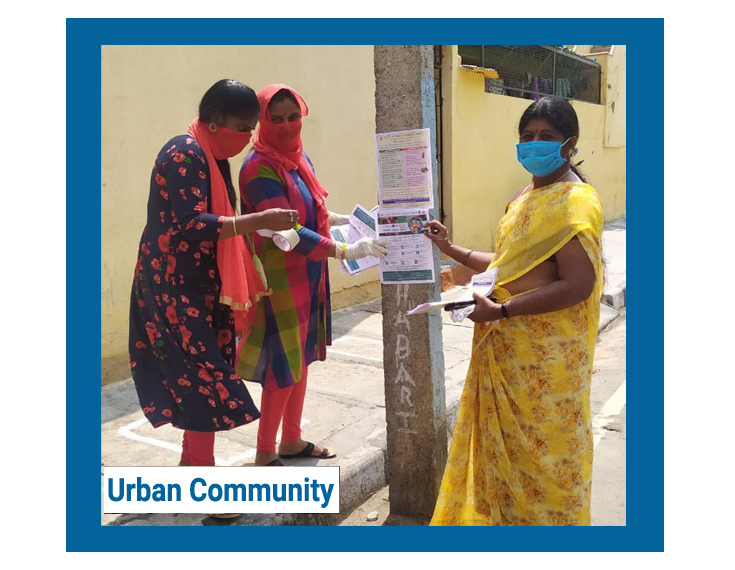
CHRIST (Deemed to be University) had supported the vulnerable population in the Bangalore urban slums in Koramangala (LR Nagar, Ambedkar Nagar), Kamanahalli (Janakiram Layout) and Wilson Garden. Under the guidance of Dr. Victor Paul, Team Leader, CSA, the project field staff identified the neediest families who were susceptible to the deadly viral infection and were provided with protective equipment. In total, 5500+ individuals were impacted through relief measures.
The worldwide outbreak of the COVID-19 pandemic has left the world in the face of an unprecedented crisis. The lockdown crisscrossed with the pre-existing vulnerabilities, bringing to the fore inequalities, discrimination, and anxieties among the disadvantaged sections of the society. In tandem with the nation’s fight against the virus spread, CHRIST (Deemed to be University) implemented a series of interventions..
The worldwide outbreak of the COVID-19 pandemic has left the world in the face of an unprecedented crisis. The lockdown crisscrossed with the pre-existing vulnerabilities, bringing to the fore inequalities, discrimination, and anxieties among the disadvantaged sections of the society. In tandem with the nation's fight against the virus spread, CHRIST (Deemed to be University) implemented a series of interventions through the Centre for Social Action (CSA) to help the most vulnerable and at-risk groups in all the project areas sail through the crisis.
This has been done at various levels such as direct support to the communities, collaboration with NGOs at the field level, networking with local government bodies in facilitating community support programmes, awareness creations among the communities, and so on. The University contributed Rs. 5,00,000/- to the Chief Minister's Relief Fund, Government of Karnataka. Besides, 12,331 people and 1,030 families among the vulnerable population in the project areas were provided with relief support that is worth Rs. 20 lakhs 34 thousand rupees, through various interventions of the University.
The relief materials were collected and distributed to support women and children in six villages of Jamkhandi, Karnataka, that were destroyed in the 2019 Karnataka floods. Generous contributions were made by CSA volunteers and Christ students for providing for these activities, and it was ensured that relief funds reached the targeted people.
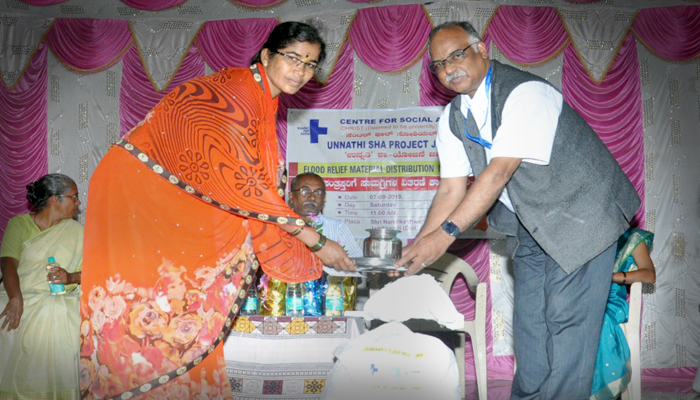
Christ (Deemed to be University) ensured relief funds reached the people
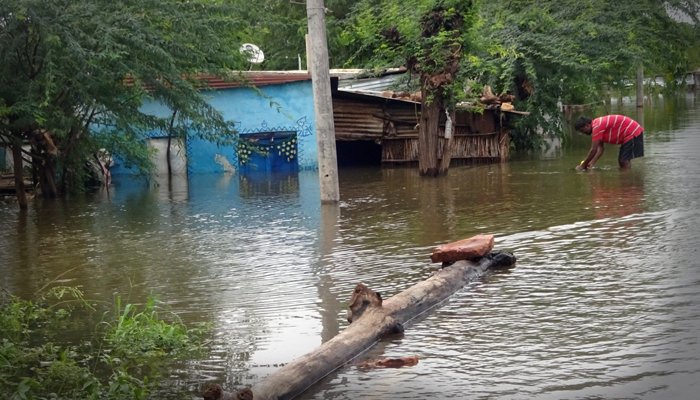
Roads and huts flooded
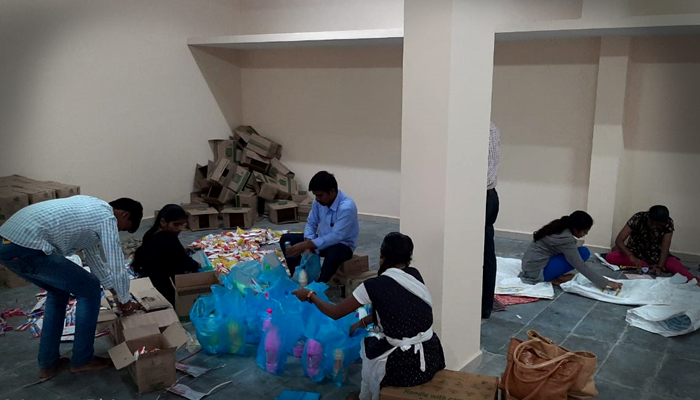
The relief materials collected to support women and children in Six villages of Jamkhandi, Karnataka
CSA volunteers with other Christ students set out from the campus on 27th November 2019 to distribute flood relief donations to çommunities affected by the flood at multiple locations along the Begur-Hulimavu Road. The residents in the area had suffered an immense loss due to the destruction of most of their possessions by the flood, like clothes, wheat, ragi, and other edibles.
CSA volunteers with other Christ students set out from the campus on 27th November 2019 to distribute flood relief donations to çommunities affected by the flood at multiple locations along the Begur-Hulimavu Road. The residents in the area had suffered an immense loss due to the destruction of most of their possessions by the flood, like clothes, wheat, ragi, and other edibles. The donation kits for each family consisted of four toothbrushes, 2 soaps, 1kg ragi, 5kg rice, 2kg dal, sanitary napkins, and chocolates for kids. The volunteers also witnessed the interior of the flood-affected houses, interacted with the locals, and enquired about the extent of the damages they’ve suffered. The donation drive was well organized in a very short period of time, and with the combined efforts of volunteers, Christites, faculty, and the council, more than 60 households were covered in a single evening.
This has been done at various levels such as direct support to the communities, collaboration with NGOs at the field level, networking with local government bodies in facilitating community support programmes, awareness creations among the communities, and so on. The University contributed Rs. 5,00,000/- to the Chief Minister's Relief Fund, Government of Karnataka. Besides, 12,331 people and 1,030 families among the vulnerable population in the project areas were provided with relief support that is worth Rs. 20 lakhs 34 thousand rupees, through various interventions of the University.
Address
Dharmaram College Post, Hosur Road, Bengaluru – 560029, Karnataka, India
Telephone
+91 804012 9100 / 9600
Send us a Fax
40129000
Mail Us At
mail@christuniversity.in


